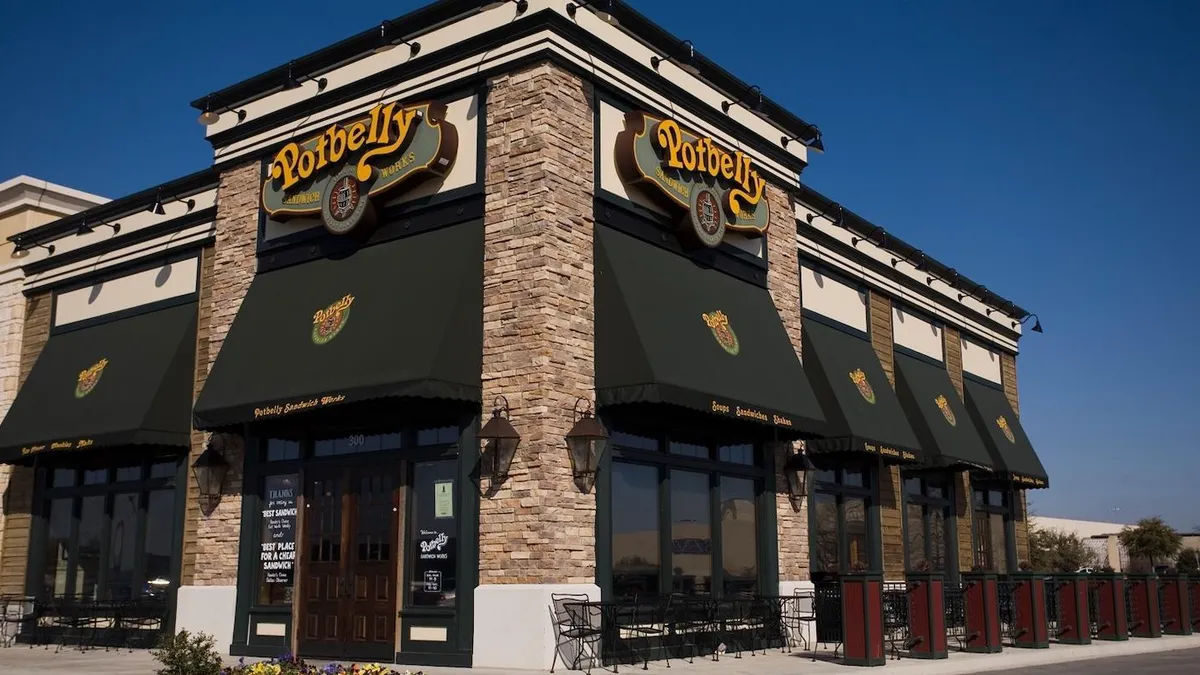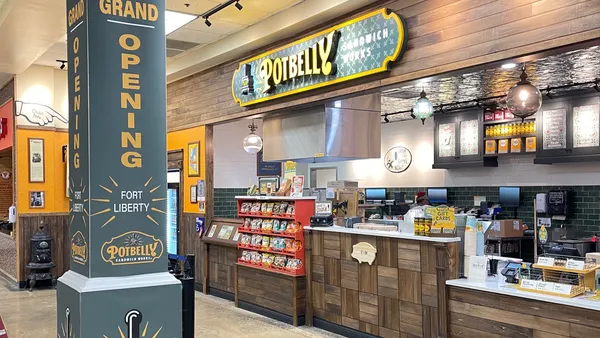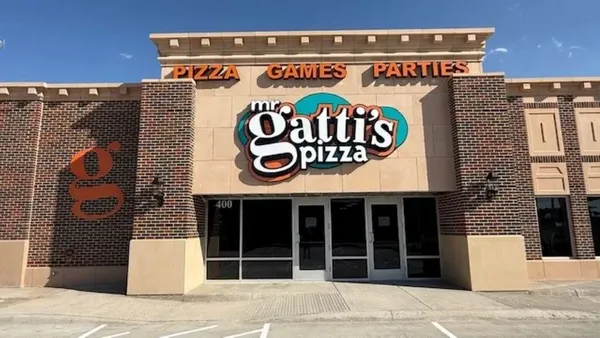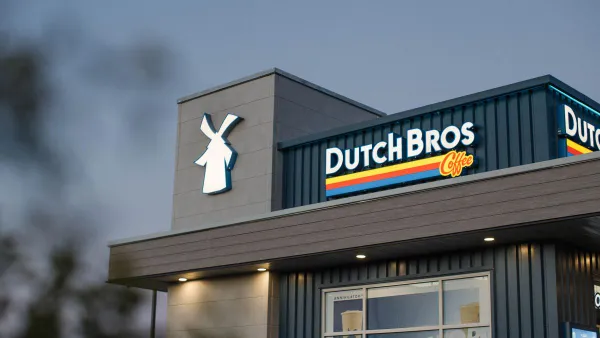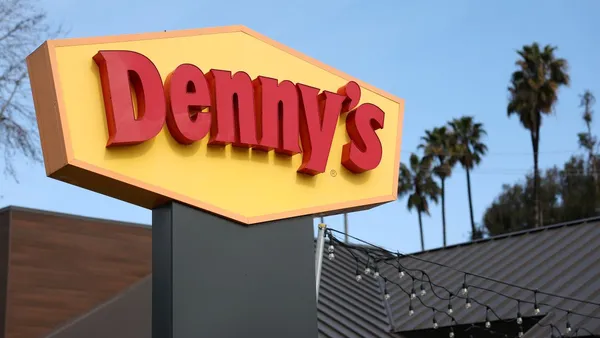Dive Brief:
- Potbelly has sold itself to RaceTrac, one of the largest privately held convenience store retailers in the U.S., for $566 million, the company said in a Wednesday press release. RaceTrac will acquire all outstanding Potbelly shares for $17.12 each in an all-cash transaction that is expected to close during the fourth quarter.
- Potbelly has over 445 company-operated and franchised units, while RaceTrac operates 800 c-stores under the RaceTrac and RaceWay brands and 1,200 Gulf branded gas stations.
- Potbelly has a long-term goal of reaching 2,000 units and the transaction will help support its goal, according to the press release. As of the end of the second quarter, the chain has enough franchise commitments signed to eventually bring its total to 816 units.
Dive Insight:
Potbelly has undergone a significant transformation over the past five years. When CEO Bob Wright joined the company in 2020, Potbelly was struggling with months of sales declines and wasn’t sure it could meet its financial obligations. Under a five-point strategy, the chain emphasized franchised development, enhanced its menu and boosted digital brand awareness.
It also instituted several operational changes to increase efficiency. Over the past few years, the brand rolled out its Potbelly Digital Kitchen, a reorganization that included a digital makeline to help process online orders. Last year, it developed an 1,800-square-foot store — roughly 500 square feet smaller than its traditional locations — to reduce construction and lease costs.
The chain posted company-operated same-store sales growth of 3.2% in Q2, making it one of the few fast casual chains to see improvement in that key metric during the second quarter.
Under RaceTrac, Potbelly is expected to remain a distinct brand. RaceTrac’s strategy isn’t to put a Potbelly in all of its c-stores either, Wright told The Wall Street Journal. However, the c-store retailer’s vast network will likely help the chain find new locations and markets for expansion. The two companies said they have “complementary strengths as multi-unit, multi-market consumer facing businesses including core capabilities in real estate, franchising, operations, food innovation and marketing.”
Potbelly does face some risks, William Blair analyst Sharon Zackfia said in a report emailed to Restaurant Dive. The brand is geographically concentrated in Chicago and there is an “intense competitive environment,” for restaurants at present she said. Ongoing wage inflation and third-party delivery fees may place pressure on margins. Zackfia highlighted Potbelly’s “nascent state of franchising development.” While the chain has signed hundreds of commitments, it only opened six franchised stores last quarter, for example, and franchised units account for less than a quarter of its store base.



